Senate vote to legalize abortion and codify Roe v. Wade shows power of key senators
- Oops!Something went wrong.Please try again later.
- Oops!Something went wrong.Please try again later.
WASHINGTON – The Senate vote on abortion rights Wednesday punctuated the tough run Democrats have had with a narrow majority and how much power a handful of key senators have had in determining what Congress can achieve.
Senators voted 49-51 on the Women's Health Protection Act of 2022 that would have codified Roe v. Wade into law. The measure failed as expected because Democrats did not meet the 60-vote filibuster threshold that's needed to advance the legislation in the upper chamber.
Vice President Kamala Harris presided over the vote as Senate president and lamented a count she didn't like.
"The majority of the American people believe in defending a woman's right to decide what happens to her own body, and this vote will suggest the Senate is not for the majority of Americans," she said to reporters after the vote. "It also makes clear the priority for all who care about this issue, the priority should be to elect pro-choice leaders at the local, state and federal levels."
Senate Majority Leader Chuck Schumer, D-N.Y., could not galvanize the support of his entire Democratic caucus, with Sen. Joe Manchin, D-W.Va., voting against the measure.
Though the Women's Health Protection Act of 2022 ultimately failed, it did what Schumer intended it to do and got senators on the record about where they stand on abortion rights. He and other Democrats are parlaying a leaked Supreme Court draft opinion – which would overturn Roe v. Wade – into a major midterm campaign platform.
'Urgent as it gets': Senate bill protecting abortion rights would bar waiting periods, arbitrary clinic regs.
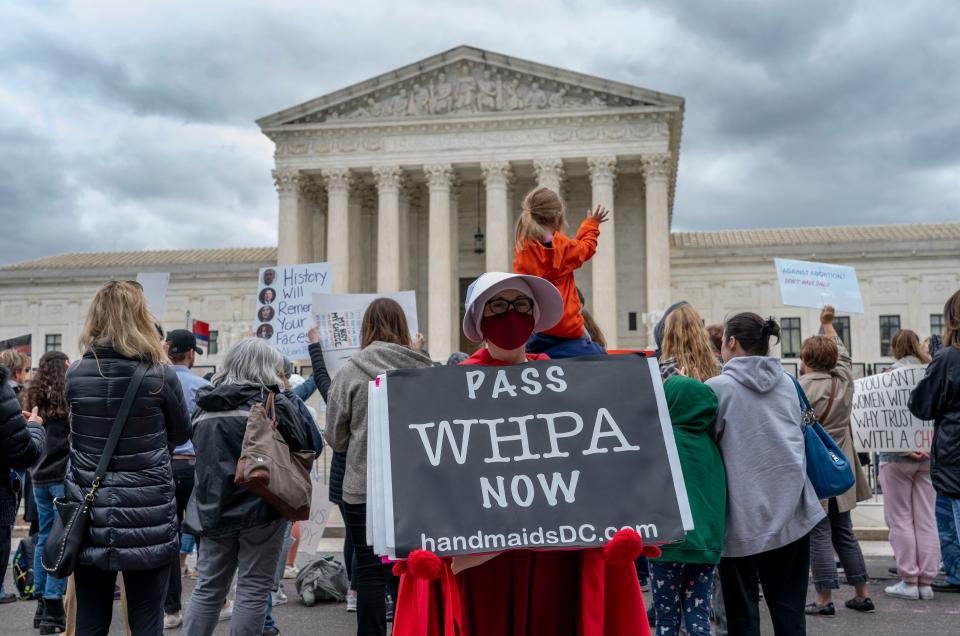
The bill that failed Wednesday is an updated version of the Women's Health Protection Act of 2021, which failed 46-48 in February. The 2022 version of the bill does not tie restrictions on abortion to white supremacy and gender oppression – language that was intended to protect all people with the capacity for pregnancy.
Democrats split on the February vote, and all Republican senators voted against it. Manchin voted with Republicans.
Six members did not vote on the abortion bill in February, including first-term Sen. Raphael Warnock, D-Ga., who is facing a difficult reelection battle in November.
Here's how Warnock and four key senators voted to determine whether abortion would be legal nationwide:
How Sen. Bob Casey voted on abortion rights
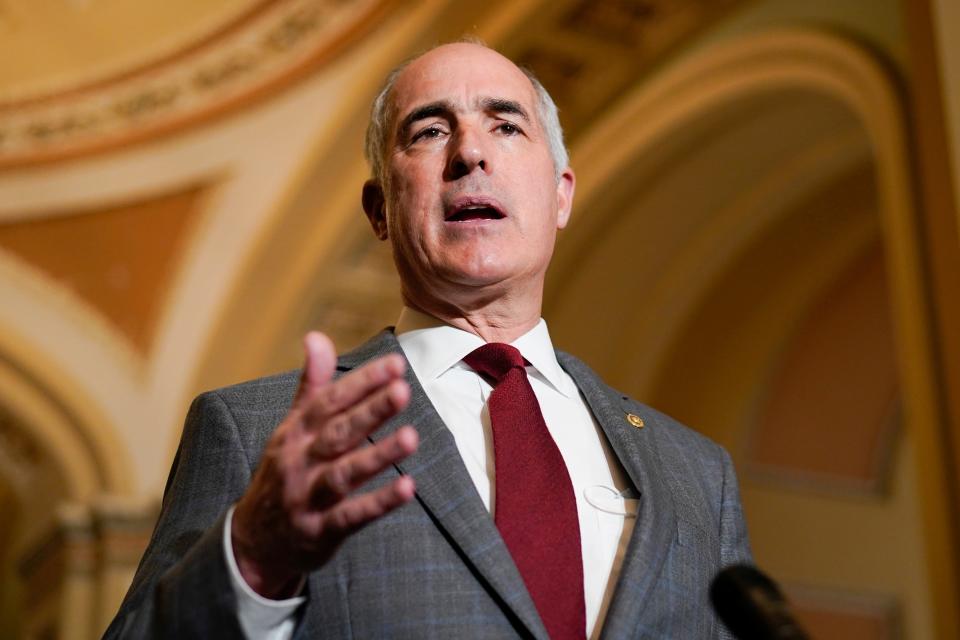
Sen. Bob Casey, D-Pa., one of the last anti-abortion Democrats on Capitol Hill, voted in favor of the measure.
He did not explicitly back legislation in February to protect abortion rights, but he voted on the procedural motion to allow debate.
Casey changed his position this month after the leaked Roe draft opinion and said in a statement that "the circumstances around the entire debate on abortion have changed." He said he would also have voted for final passage of the bill if it had reached the floor.
"The real question of the moment is: do you support a categorical ban on abortion?" Casey said. "During my time in public office, I have never voted for – nor do I support – such a ban."
How Sen. Susan Collins voted on abortion rights
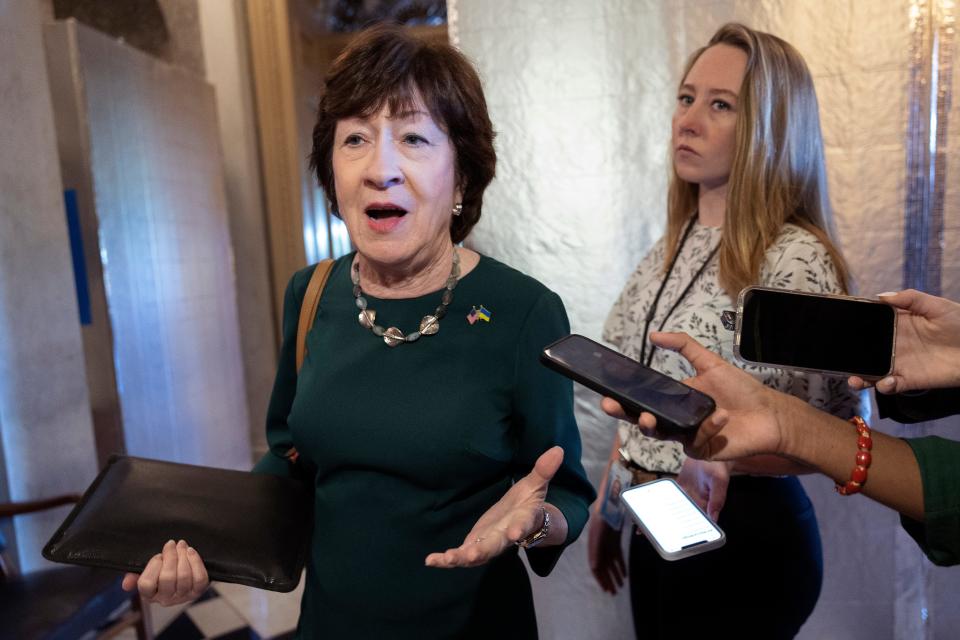
Sen. Susan Collins is a pro-choice Republican from Maine who has voted with Democrats on several issues, but she voted against the bill.
In the days leading up to the vote, she expressed concerns the Senate bill went too far.
Collins has introduced a bill with fellow moderate Republican Sen. Lisa Murkowski of Alaska that would also codify Roe v. Wade.
"After today's vote fails, I plan to continue working with my colleagues on legislation to maintain – not expand or restrict – the current legal framework for abortion rights in this country," she said in a statement before the vote.
Roe protests: Republicans hit Democrats over Roe protests at justices' homes, calling them 'mob rule'
How Sen. Joe Manchin voted on abortion rights
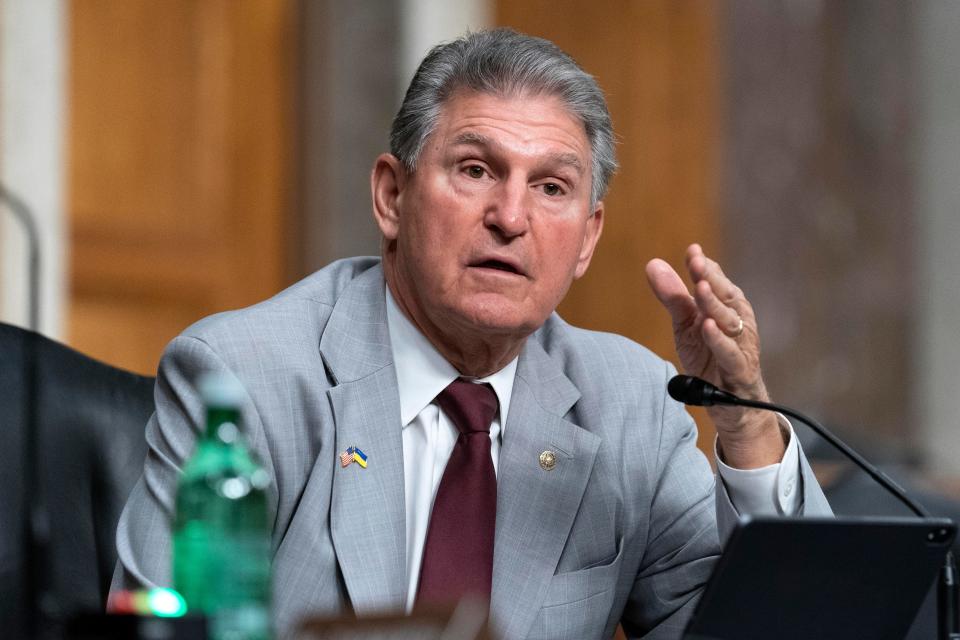
Sen. Joe Manchin, D-W.Va., a key swing vote who has both halted and passed cornerstones of President Joe Biden's broader agenda, voted against the bill.
He also joined Republicans in voting against opening debate on the earlier bill.
Manchin, a pro-life Democrat who believes in exceptions for rape, incest and the health of the patient, told reporters he would support a codification of Roe v. Wade, but he said the current Senate bill goes too far.
Polls show 70% of American voters want to keep Roe v. Wade in place, as it has been precedent for almost 50 years, he said. The Senate bill expands abortion access beyond the landmark law, he said.
"Make no mistake, it is not Roe v. Wade codification. It's an expansion," Manchin said. "It wipes 500 state laws off the books."
Why was Roe never codified in Congress?: Democrats since Clinton 'kind of dropped it'
How Sen. Lisa Murkowski voted on abortion rights

Murkowski, who has crossed party lines to vote with Democrats at times, joined with her caucus and voted against the legislation
She previously voted against it a similar version in February as well.
"I have long supported a woman’s right to choose, but my position is not without limits," Murkowski said in February, when the Senate was prepared to vote on an earlier version of the Women's Health Protection Act.
She said the act "simply goes too far. It would broadly supersede state laws and infringe on Americans’ religious freedoms."
How Sen. Raphael Warnock voted on abortion rights
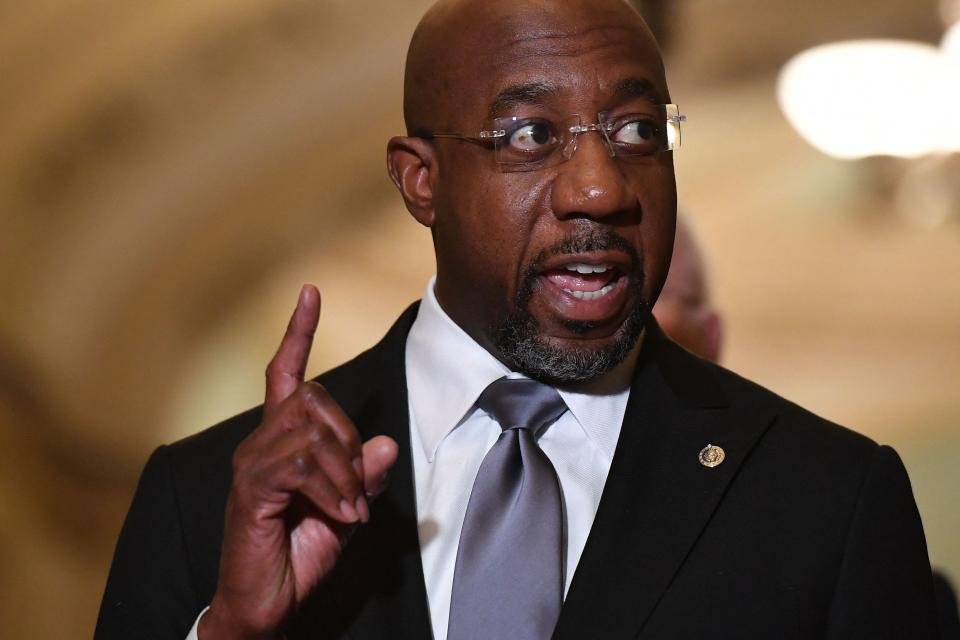
Warnock, a first-term senator who is facing a difficult reelection battle in November and is also head pastor at a Baptist church, voted in favor of the Women's Health Protection Act.
Warnock did not vote on the earlier bill in February, but he voted with his party this time.
"As a pro-choice pastor, I’ve always believed that a patient's room is way too small for a woman, her doctor, and the United States government," he said last week. "I'll always fight to protect a woman's right to choose. And that will never change."
Candy Woodall is a Congress reporter for USA TODAY. She can be reached at cwoodall@usatoday.com or on Twitter at @candynotcandace.
This article originally appeared on USA TODAY: How Manchin, Collins, Murkowski, other key senators voted on abortion


